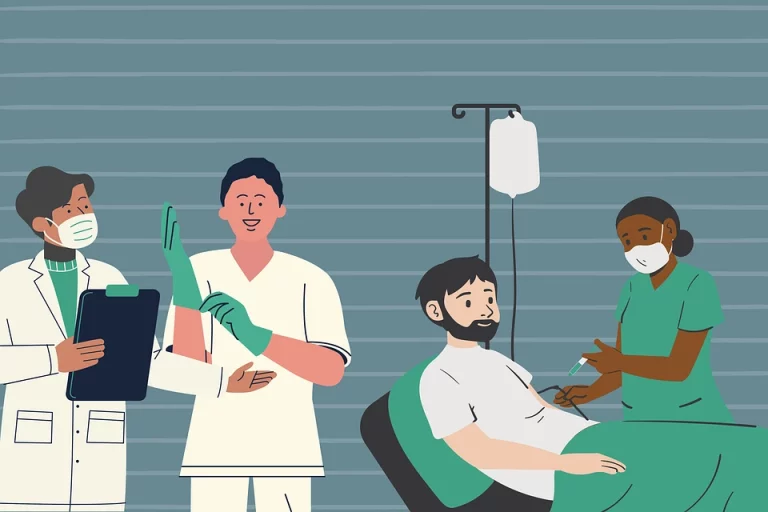Book Appointment Now

Dealing with the Emotional Impact of Clinical Rotations
Clinical rotations are a critical part of nursing education, giving students the opportunity to apply classroom knowledge in real-world healthcare settings. However, these experiences can also be emotionally challenging as students face the realities of patient care, witness suffering, and navigate stressful situations. Understanding how to manage the emotional impact of clinical rotations is essential for maintaining mental health, developing emotional resilience, and succeeding as a nursing student. In this guide, we’ll explore strategies to cope with the emotional stress of clinical rotations and tips to manage difficult experiences effectively.
Do you have a demanding nursing essay?
Order Custom Nursing Essay
Why Clinical Rotations Can Be Emotionally Challenging
While clinical rotations offer invaluable hands-on experience, they also expose nursing students to intense emotions and challenging situations. These emotional challenges can stem from a variety of factors:
1. Witnessing Patient Suffering
Nursing students often encounter patients with severe illnesses or life-threatening conditions. Witnessing pain, suffering, and death for the first time can be overwhelming, especially for those who haven’t experienced these situations before.
2. Managing High Expectations
During clinical rotations, students are expected to demonstrate their skills and knowledge while working under the supervision of experienced healthcare professionals. The pressure to perform well, avoid mistakes, and meet clinical expectations can lead to stress and anxiety.
3. Dealing with Uncertainty
As a student, you may feel unsure of your abilities when faced with real patients and complex care scenarios. The fear of making mistakes or not knowing the right course of action can add to the emotional burden.
4. Handling Emotional Patients and Families
Patients and their families often experience heightened emotions, including fear, anger, or grief. Nursing students must navigate these emotions while providing compassionate care, which can be emotionally draining.
Coping with the Emotional Impact of Clinical Rotations
Managing the emotional impact of clinical rotations is crucial for maintaining both your mental well-being and your performance as a nursing student. Here are some strategies to help you cope effectively:
1. Recognize and Acknowledge Your Feelings
The first step in dealing with emotions is recognizing and acknowledging them. It’s normal to feel anxious, sad, or overwhelmed during clinical rotations. Rather than suppressing these feelings, take time to process and reflect on them. This emotional awareness can help you understand your triggers and develop coping strategies.
How to Practice Emotional Awareness:
- Journaling: Write down your thoughts and feelings after a difficult day. Journaling can help you process your emotions and gain insight into your experiences.
- Talking to peers: Share your feelings with fellow students or colleagues who may be going through similar experiences. This can provide emotional support and reassurance that you’re not alone.
2. Seek Support from Mentors and Supervisors
Clinical instructors and mentors are there to guide and support you throughout your rotations. Don’t hesitate to reach out to them when you’re feeling overwhelmed. They can offer advice, provide feedback, and help you navigate emotional challenges.
How to Seek Support:
- Be honest about your feelings: Let your supervisor know if you’re struggling with certain aspects of the rotation, whether it’s managing emotions or handling a specific task.
- Ask for feedback: Constructive feedback from experienced professionals can boost your confidence and help you improve your performance, reducing feelings of uncertainty.
3. Develop Emotional Resilience
Building emotional resilience is key to handling the stress of clinical rotations. Emotional resilience helps you bounce back from difficult experiences, manage stress more effectively, and maintain a positive outlook even in challenging situations.
Tips for Building Emotional Resilience:
- Practice mindfulness: Mindfulness exercises, such as meditation or deep breathing, can help you stay calm and focused in high-pressure situations.
- Maintain perspective: Remind yourself that clinical rotations are a learning experience. Mistakes are part of the process, and they offer valuable opportunities for growth.
- Focus on what you can control: Instead of worrying about everything at once, focus on the tasks you can control and take it one step at a time.
4. Set Boundaries Between Work and Personal Life
It’s important to separate your clinical experiences from your personal life. Bringing the emotional weight of the day home with you can lead to burnout and long-term stress. Set clear boundaries to maintain a healthy balance between your nursing responsibilities and your personal well-being.
How to Set Boundaries:
- Leave work at work: Try not to dwell on stressful clinical experiences once you’ve left the hospital or clinic. Create a mental boundary between work and personal time.
- Engage in self-care: Prioritize self-care activities, such as exercise, hobbies, or spending time with loved ones. These activities can help you relax and recharge after a challenging day.
5. Seek Professional Help When Needed
If the emotional impact of clinical rotations becomes overwhelming, don’t hesitate to seek professional help. Counseling or therapy can provide you with the tools to manage stress, anxiety, and other emotional challenges effectively.
Benefits of Seeking Professional Help:
- Therapeutic support: A mental health professional can offer strategies for managing stress, anxiety, and emotions in a healthy way.
- Preventing burnout: Early intervention through counseling can prevent long-term emotional exhaustion and burnout, which are common in healthcare professions.
Managing Stress During Clinical Rotations
Stress is an inevitable part of clinical rotations, but learning how to manage it can make a significant difference in your experience. Here are a few additional tips for handling stress during your clinical placements:
1. Time Management and Organization
Feeling overwhelmed by tasks and responsibilities can add to your stress. Good time management and organization can help you stay on top of your clinical duties and reduce anxiety.
How to Manage Your Time Effectively:
- Prioritize tasks: Identify the most important tasks for each day and focus on completing them first.
- Use a planner: Keep a planner or use a digital tool to schedule your shifts, study time, and personal activities.
- Break tasks into smaller steps: Large tasks can feel daunting, so break them down into manageable steps to avoid feeling overwhelmed.
2. Stay Physically Active
Physical activity is a great way to reduce stress and improve your mental health. Incorporate exercise into your routine, whether it’s a walk after your shift or a quick workout in the morning.
3. Get Adequate Rest
Clinical rotations often come with long hours and irregular shifts, which can take a toll on your energy levels. Prioritize sleep and ensure you’re getting enough rest to help your body and mind recover.
Dealing with the emotional impact of clinical rotations is a vital part of nursing education. While clinical placements can be emotionally taxing, they are also an opportunity to build resilience, grow professionally, and develop coping mechanisms that will serve you throughout your nursing career. By recognizing your feelings, seeking support, and developing healthy coping strategies, you can successfully navigate the emotional challenges of clinical rotations and thrive as a nursing student.







